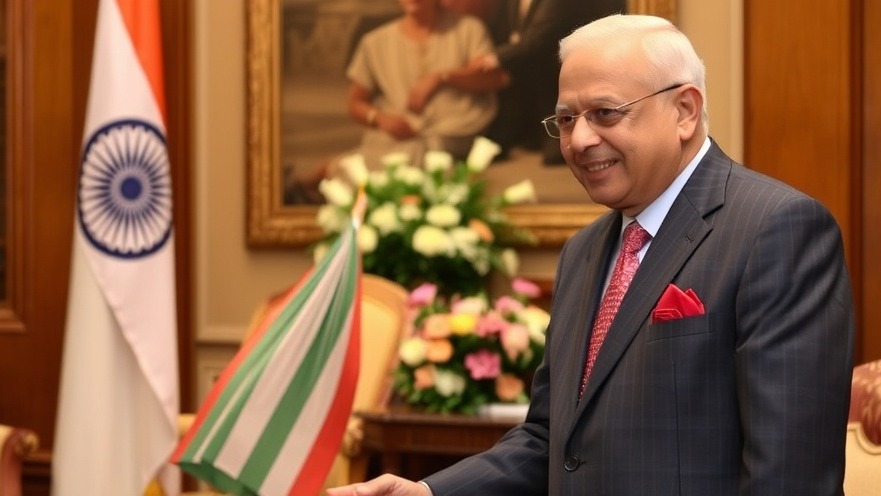
Ambassador Kwatra's Vital Discussions on Energy Security
In a series of high-profile meetings in Washington, D.C., Indian Ambassador Vinay Mohan Kwatra engaged with U.S. lawmakers to discuss energy security within the context of growing hydrocarbon partnerships. The backdrop of these discussions is President Trump’s recent imposition of a hefty 50% tariff on Indian goods, which has raised concerns about the economic landscape of U.S.-India relations.
The Importance of Bilateral Hydrocarbon Trade
During his conversations, Ambassador Kwatra emphasized the significance of hydrocarbon purchases from the United States as a key driver of India's energy security. This development is critical, as India seeks to diversify its energy sources amid fluctuating global energy markets and geopolitical tensions. With the U.S. enhancing its role as a major oil producer, this partnership holds potential for stability in India's energy supply.
Counteracting Tariff Tensions
The commercial exchange is currently strained due to the tariffs on Indian goods, but Kwatra’s discussions highlight the importance of maintaining fair and balanced trade ties. Engaging lawmakers such as Claudia Tenney and Josh Gottheimer, he articulated the necessity for mutually beneficial agreements that would support both nations economically. These talks were not just about oil and gas trade; they represent a concerted effort to navigate through the current economic climate without compromising on crucial partnerships.
Addressing Russian Oil Purchase Concerns
Another point of contention in these discussions has been India’s procurement of discounted Russian oil, which has drawn criticism from U.S. officials. Particularly, White House Trade Advisor Peter Navarro's remarks accusing India of being a 'laundromat for the Kremlin' reflect the complicated dynamics between trade and international relations. The U.S. has expressed concerns that these purchases allow Russia to fund its military actions in Ukraine. Ambassador Kwatra's outreach to lawmakers serves to clarify India's position and address these allegations while seeking common ground for collaboration.
Future Trends in U.S.-India Energy Cooperation
Looking ahead, the future of U.S.-India energy cooperation hinges on navigating tariff barriers and managing geopolitical tensions. The integration of energy markets can be a mutual benefit if pursued with an understanding of each country’s strategic interests. As the U.S. seeks to solidify its status as a leading energy partner for nations like India, ongoing dialogues become essential for aligning policy objectives.
The Broader Implications of Hydrocarbon Partnerships
The growing hydrocarbon partnership isn't just about energy supply; it's a strategic collaboration that could influence geopolitical dynamics in the region. By strengthening these ties, both nations may fortify their positions against global competitors and create a robust framework for energy security that includes technology exchange and sustainable practices.
Takeaway: The Value of Continued Engagement
As the U.S. and India grapple with the complexities of their trade relationship amid tariffs and international scrutiny, Ambassador Kwatra's insistence on consistent dialogue symbolizes the essential nature of diplomacy in energy security. Moving forward, it will be vital for both nations to focus on cooperation and mutual respect in order to achieve a balanced energy market that benefits their economies and enhances global stability.
 Add Element
Add Element  Add Row
Add Row 



Write A Comment